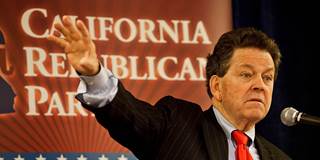John Kenneth Galbraith noted in 1973 that establishment economics had become the “invaluable ally of those whose exercise of power depends on an acquiescent public.” If anything, economists’ embrace of that role has grown stronger since then.
NEW DELHI – Mainstream economics has a tendency to decide on some “established” conclusions, and then hold to them, notwithstanding all evidence to the contrary. This is bad enough, but what may be worse for a discipline that lays claim to being a science is the lack of insistence on the replicability of empirical results. This is both standard and essential in most natural sciences; in economics, by contrast, there is mostly indifference and occasionally even fierce resistance to it. In some cases, the data that must be used to replicate conclusions are denied to other researchers.

NEW DELHI – Mainstream economics has a tendency to decide on some “established” conclusions, and then hold to them, notwithstanding all evidence to the contrary. This is bad enough, but what may be worse for a discipline that lays claim to being a science is the lack of insistence on the replicability of empirical results. This is both standard and essential in most natural sciences; in economics, by contrast, there is mostly indifference and occasionally even fierce resistance to it. In some cases, the data that must be used to replicate conclusions are denied to other researchers.